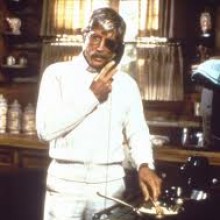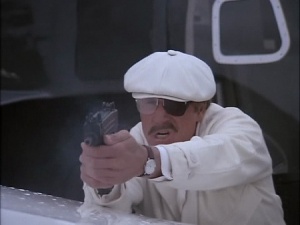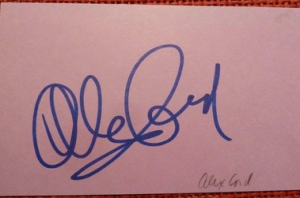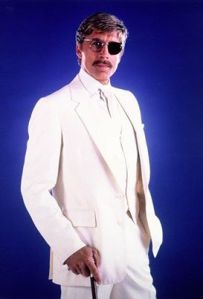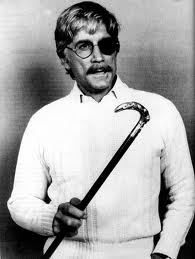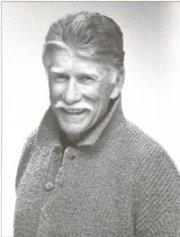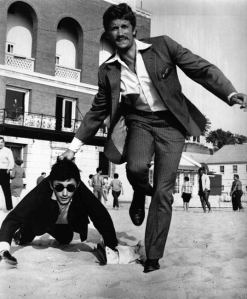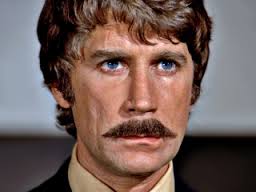Movie star and bestselling author Alex Cord is on the interview trail again with incoming interviews from Simon Duringer and Fiona Mcvie. It’s only natural for Alex to be interviewing as the internet has been devoid of his presence for a long time. Alex the man looks after his privacy but loves his fans. He enjoys writing, reading and rarely catches his old movies. As an interviewee he is the perfect gentleman with patience a-plenty. Alex will be at the “Spirit of the Cowboy” festival later this week to meet with fans, old friends and some new ones. For those of you who can’t attend he is also throwing a Facebook party! Come and join his event to ask questions, get autographs and meet with other Cord fans the world over. Fans keep telling Alex that the world needs more of his presence so here we have an interview from the younger Cord… Enjoy!
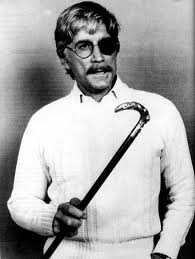 Alex Cord is one of the most respected horsemen in Hollywood. He spends most of his spare time at the Los Angeles Equestrian Center, training and schooling his own polo horses. He is a member of a celebrity polo team that includes William DeVane, Jameson Parker, Doug Sheehan, Pamela Sue Martin and Stefanie Powers. The team performs frequently in L.A. and also travels all over the United States, putting on celebrity matches for various charities. They have raised more than $2-1/2 million.
Alex Cord is one of the most respected horsemen in Hollywood. He spends most of his spare time at the Los Angeles Equestrian Center, training and schooling his own polo horses. He is a member of a celebrity polo team that includes William DeVane, Jameson Parker, Doug Sheehan, Pamela Sue Martin and Stefanie Powers. The team performs frequently in L.A. and also travels all over the United States, putting on celebrity matches for various charities. They have raised more than $2-1/2 million.
When he’s not on horseback, Alex makes a living as an actor. He’s been in many television series, one of which is Airwolf, in which Alex has a recurring role. His feature movie credits include The Brotherhood, with Kirk Douglas and Alex had the leading role in the 1966 remake of the John Wayne classic, Stagecoach. He has just finished a movie called Street Asylum, with G. Gordon Liddy. Cord is also a published novelist and has sold several screenplays.
Horses have been a lifelong interest for Cord. He has recently gotten involved in cutting as well as polo. In fact, Alex is an all-around horseman who has ridden more kinds of horses (all over the world) than most horsemen ever will. He enjoys all kinds of riding, and is something of an authority on general horsemanship.
Alex says, “As an actor, I’ve had the opportunity to do a great deal of traveling — in this country and around the world. I’ve ridden with horsemen everywhere, and found that most people who are involved with horses get stuck in their own personal discipline. They pride themselves on that particular way of riding and disdain everything else.
“The hunter/jumper people are snobby about cowboys, polo players think team ropers are wasting their time, cutting horse people think cutting is the only thing in the world worth doing horseback, and dressage people are in their own narrow world. Each one thinks his activity is the only way to use a horse.
“I’m interested in all of it. I’ve poked my nose everywhere I can. I ask a lot of questions, and I think I’ve learned something from every good horseman I’ve ever met — and that includes some darn good horsewomen. I’ve tried almost every kind of competitive riding there is, and I’ve learned something about horses and myself every step of the way. The horse can be a great teacher, if one will only listen.”
Cord’s earliest dreams were to become a jockey. He was born right near Belmont Park in New York. As a school-age child, he’d leave for school an hour early and ride his bicycle to the racetrack. “I’d hide the bike in somebody’s hedge,” says Alex. “I’d climb the fence and hide in the brush where I could watch the horses being worked. All my heroes were little guys who rode fast horses.”
There were lots of horses on Long Island in those days, and young Alex took every opportunity to ride. There were polo fields and rental stables. On Saturdays, he took care of horses at the stables so they’d let him ride. He says, “I’d take people out on trail rides, and, in the summers, I worked at the racetrack, walking hots or doing anything else they’d let me do. I even got to excercise some race horses.”
Eventually, Alex realized that he was growing too big to ride race horses professionally, so he started to ride in rodeos. There were a few small rodeos in the area, and a rodeo producer names Colonel Jim Eskew had a place in Waverly, New York. “I worked with him and rode broncs and bulls in his rodeos,” says Alex. “I did okay on bulls and bareback horses, but I could never hit the right lick on saddle broncs. My heroes were Casey Tibbs, Jim Shoulders, the Linderman brothers. And I’m proud to say that Casey is still a good and close friend.”
About that time, Alex dropped out of school and bummed around the West for five or six years, mostly riding in rodeos. He began to realize, though, that he needed to finish his education, so he went back to New York, finished high school, and entered college. It was there that he first became interested in theater and acting.
“It completely changed my focus in life,” says Alex, “and for a period of about 10 years, I stopped riding horses. I lived in Greenwich Village in New York, studied acting, hung out in coffee houses, and worked in the theater doing plays by Tennessee Williams, Samuel Beckett, and William Shakespeare.”
After 10 years in theater, Hollywood called and Alex began to work in films. “That’s when I began to get on a horse again.”
But things changed again in the late ’60s. Cord became disenchanted with Hollywood, and he moved north to the Carmel Valley, where he could enjoy the rural life. “I leased 200 acres,” he explains, “and started buying and training Quarter Horses. It was like rediscovering myself. I was living out in the boonies, I was alone, and once again horses became my life. The passion was stronger than it had ever been.
“There was a man there named Bill Lambert, a rancher who was a hell of a horseman. He showed me a lot of cowboy stuff, good things. I learned a lot from him.”
Alex spent five years there, in a state of semi-retirement, working with horses and writing a novel. The novel got published at about the time the land owner decided he wanted the ranch back, so Alex returned to Hollywood to do publicity on the book.
“But then I knew that I had to do something to keep up the riding,” says Alex. “One kind of riding I had never done was English, and I had never had any formal training as a rider. I thought I might be able to learn something new, so I found a woman who was a good trainer with hunter/jumper people, and I started taking lessons. I rode a lot of jumpers, and I learned a hell of a lot from her. And right about then I think I decided to be the best all-around horseman I could.”
Alex has been dedicated to achieving that lofty goal ever since. He has taken every opportunity to ride, no matter what kind of horse or riding is involved. He mentions some of the things he’s tried. “I studied dressage for two years. I’ve ridden hunters and jumpers and was a whipper-in with a fox-hunting club for five years. I compete as a roper, with varying degrees of success, and I’m getting real good with cutting horses — I’ve been working with Leon Harrel and Bobby Hunt and Jerry Lucas. (Last December 4, Alex won the celebrity cutting at the NCHA Futurity in Forth Worth on Leon Harrel’s mare Swingin’ Tari.) I’ve ridden in amateur steeplechase races, and I’ve even ridden Andalusians, doing airs above the ground. When I was a kid, I even tried a bit of trick riding, with Rex Rossie. Right now, I’m serious about polo. About the only thing I haven’t at least tried to do is ride a hundred-mile endurance race.”
Alex explains that anytime he is around horse people, he keeps his eyes and ears open, ready to learn anything that he can. He says, “I’m helping my assistant, Wendy Rothwell, to ride and to school my horses. The other day, I asked a professional how to correct a little problem one of my horses had. That, to me, is how you get to be a good horseman. You keep yourself open to anything.”
Cord’s acquaintances consider him to be a highly knowledgeable horseman. Alex says he can point to no source more than any other for the bulk of his knowledge.
“Absolutely, without a doubt, the ones who have taught me the most are the cowboys I have known. So often, in the larger part of the horse world, cowboys are not given nearly enough credit for their skill with horses. In fact, people will use the phrase, ‘Don’t cowboy that horse around,’ in a derogatory fashion. I get a little annoyed with that because when you watch a man like Leon Harrel or John Lyons or Ray Hunt or Tom Dorrance, you can see that they are highly skilled men with great sensitivity who know how to get a superior performance from a horse.”
In one instance, Alex was able to pass along a bit of his “cowboy” education to a professional rider. A friend of his had represented Puerto Rico in dressage in the 1984 Olympics. She had lived 10 years in Germany, riding the big German warmbloods and learning from the German riding masters. Alex was helping her work dressage hroses at teh Equestrian Center, and she was teaching him a great deal.
“She was an Olympian,” he recalls. “I never dared to presume I could give her any advice, but one day she complained about a big horse she was riding. ‘He’s so stiff on the right, he’s pulling my arm out of the socket.’ The horse was a monster, a 17-hand Holsteiner.
“I remember looking over my shoulder to see if any of those other ‘velvet heads’ were around, and then I said, ‘Have you ever tried tying his head to his tail?’
“She had no idea what I was talking about, so I tied the horse’s head around to the right, and we watched him for about 20 minutes. She was amazed. She’d never seen it before. When she got back on the horse, he turned to the right, just like she’d been trying to get him to do. She said, ‘I don’t believe this. I’ve been working him for four days and haven’t been able to get him to soften up on that side. He’s a different horse!’
“I said, ‘I learned that from an old cowboy one time.’
“That incident,” says Alex, “just goes to prove that you can learn from anybody. She was an Olympian, and she learned from me.”
Cord says that another way he learns is by teaching. “Wendy has been working with me a couple years now. I tell her stuff, but when I do, I’m reinforcing what I know. I’ll watch her ride, and when she makes a mistake I correct her and I learn, too.”
You would expect that a man like Cord, who has had so much experience on so many kinds of horses, would have an opinion about what breed he likes best. Says Alex, “Different breeds perform well in certain areas. If I was as seriously involved in cutting as I am in polo, I know the Quarter Horse would be it. Anyone who tries cutting on anything else is wasting his time.
“But apart from that or working cattle, to me, the Thoroughbred is the horse. They’re harder to train, they’re more temperamental, hot-blooded, liable to jump out of their skin, but the thing I love about them is that they’ve got that spirit, that flash of movement, that lightness. The Thoroughbred sweeps over the ground, real light and buoyant. That’s what I like. For polo, it is almost essential that you ride a Thoroughbred. You are going to get blown away if you are on anything else.”
Polo is a subject that Alex is enthusiastic about, and he speaks almost reverently about polo horses. “Nothing but the Thoroughbred has the speed or the stamina for the game. An Arabian has endurance, but he runs like he’s tied to a post. A Quarter Horse has a good handle on him and is quick for a short distance, but he runs out of gas in 2-1/2 minutes. A polo pony has to gallop non-stop for an average of 10 minutes. When he does stop, it is a hard stop, and he has to turn left or right and jump out with the same intensity — whether he’s going to gallop 300 yards or 15 feet. Then, suddenly, the ball changes direction and you’re on his face again, asking for the stop and another start.
“That’s one thing few horsemen understand about polo. In every other equestrian sport, the horse gets to learn a pattern of behavior. A jumper knows he’s expected to jump. He can relax between jumps. A race horse knows what he has to do, the cutting horse has a pattern of activity, the calf horse rates the calf and knows about how every time out will be.
“But the polo horse never gets a chance to learn a pattern of behavior. He can’t learn to chase the ball, because there are times when the rider can see that the ball is about to change directions, so he turns the horse before the direction change, in anticipation of the shot. The horse is always at the rider’s will. That’s why polo ponies are wired all the time. They can never rest. They never know what they’ll be asked to do next or when it will happen. They have to run like blazes and stop at any time.
“And they’re getting bumped all the time by other horses. It’s a tough sport, and it takes a special horse to be able to handle it. Particularly, the mental stress.
“Playing polo is a bit of a dichotomy for me. I’m such a horse lover. I am a subtle rider. I’m skilled. I know how to ride a horse on a shoestring and have him as light as he can be. But when I’m in that game, there are lots of times when I’ve got to sit down, haul back, pick him up, spin him over his hocks, and spur him on again. There’s no way around it. That’s the nature of the game. My hat is off to the polo ponies. I think there ought to be statues of them everywhere.”
Like many westerners, Cord has a kind of cowboy outlook on things. He speaks of how much he would like to have lived in an earlier time. “I’d like to see us go back to an age before the internal combustion engine. I could live very well without cars. If it were up to me, I’d rip up all the concrete everywhere and drive a horse and buggy. Even though I was born on Long Island, at heart I’m a cowboy. That’s the way I like to think of myself. I’m all for burning three-piece suits and bringing back the jeans and the big hats.
“My dream is to make enough money that I can turn to writing more than acting. Then, I’d move to Texas or Arizona and have a place of my own. I was never happier than when I was on that ranch in the Carmel Valley.”
It is the world of horses that brings Alex Cord his greatest pleasures, because being a good horseman is a continuous challenge. Alex says, “I always say that it is a lifelong pursuit for a perfection that you can never achieve. If anyone tells me he or she is bored, I tell that person to get involved with horses. You’ll never be bored a minute in your life. There is no time for it. There is something new to learn all the time.”
DON’T FORGET to catch a copy of Alex’s latest bestselling novel “Days of the Harbinger.” If you want to know Alex… This book may let you into his very, very private thoughts.
